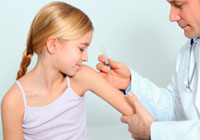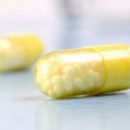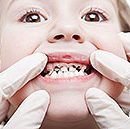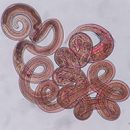How to focus a premature or low-handed child? Answer to this question you will find in the article.
Content
Freshing
It should be borne in mind that even with the same weight and degree of physiological immaturity, premature children can differ significantly in their condition, adaptation capabilities and ability to absorb food substances.
The need for protein in premature babies is relatively high. However, with its excessive introduction with food, a toxic effect may develop due to the immaturity of metabolic processes. Therefore, the amount of protein in the 1st month should be 2.5-3 g / kg of body weight, for children older than 1 month - 3-3.5 g / kg.
The need for fats for prematurers is almost the same as in the docking (in the first half of the year - 7-7 g / kg; in the second half of the year - 6.5-5.5 g / kg), although their disposal is limited. Due to the mixture of plant and animal fats, 40-50% of the calorie need must be provided.
The need for carbohydrates is also close to the need for docking children and is 12-14 g / kg body weight.
In premature children, the need for calcium and phosphorus is high as the active mineralization of the skeleton occurs. Often (already from the 2nd month of life) develops a lack of iron. In connection with the large metabolic tension, such children require an increased amount of vitamins.
In the recommendations of the American Pediatric Association, the need of a premature child (with a body weight 800-1200g.) Amount:
- In the energy of 130 kcal / kg mass per day,
- in proteins - 4 g / kg mass,
- In mineral substances, respectively: sodium - 80 mg / kg, potassium -97 mg / kg, phosphorus - 140 mg / kg, calcium - 280mg / kg, magnesium - 10mg / kg body weight.
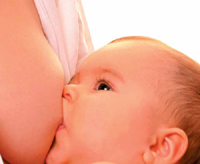 Deep premature babies (1500g and less) may be absent sucking and swallowing reflexes. In such cases, the child first 1-2 weeks are fed through the probe. With the appearance of a sucking reflex, the child is applied to the chest, and with an active sucking - the baby is fed only with breasts. Since sucking the chest requires a prematurest child of large energy costs, it is recommended before and after feeding to make a child 3-5 minutes inhalation of moisturized oxygen. As a rule, premature children are in hospitals in special branches, until they lose more than 2000-25000 g and only after that they are issued home.
Deep premature babies (1500g and less) may be absent sucking and swallowing reflexes. In such cases, the child first 1-2 weeks are fed through the probe. With the appearance of a sucking reflex, the child is applied to the chest, and with an active sucking - the baby is fed only with breasts. Since sucking the chest requires a prematurest child of large energy costs, it is recommended before and after feeding to make a child 3-5 minutes inhalation of moisturized oxygen. As a rule, premature children are in hospitals in special branches, until they lose more than 2000-25000 g and only after that they are issued home.
Usually premature babies are fed 7-8 times, and deeply prematurely up to 10 times a day. As the body weight is raised, the number of feedings are reduced to 6.
For breeding premature children use various adapted mixtures. Good use for feeding premature children Acidophilic variants of these mixtures, mixtures and milk enriched with special biological active additives.
Between feeding and during the night interruption of a premature child in small portions is given fluid. The need for it is 200 - 250 ml / kg of body weight (more than 80% due to milk or mixture). Usually additionally to the milk give a mixture of physiological solution and a 5% glucose solution in a ratio of 1: 1.
From monthly age, vegetable decoction is recommended. In the nutrition of premature babies, it is important to provide early introduction of juices and feeding to meet their increased need for vitamins and mineral salts. Juices begin to give children from the 3-4th week of life in gradually increasing dosage after eating (as well as dead children).
From 2-monthly age, a premature child should receive a fruit puree, starting with 1/2 teaspoon to 50g - in the first half of the year and up to 100g - by the end of the year. Egg yolk give from 3 months of age (as well as dead children). The first lure in the form of a vegetable puree is beginning to give from 4 months.
In order to prevent anemia from 4-5 months of age, it is recommended to give a puree from meat and liver. In 5 months, it is started to give a second lure in the form of a dairy porridge, from 7-8 months the third adord is introduced - fermented milk products (kefir, acidophilic milk and others.).
To achieve the right development of a premature child, you need to regularly control the increase in body weight and in a timely manner correction. The calculation of the power should be carried out at least once a month, but with a bad increase in the mass - weekly.



